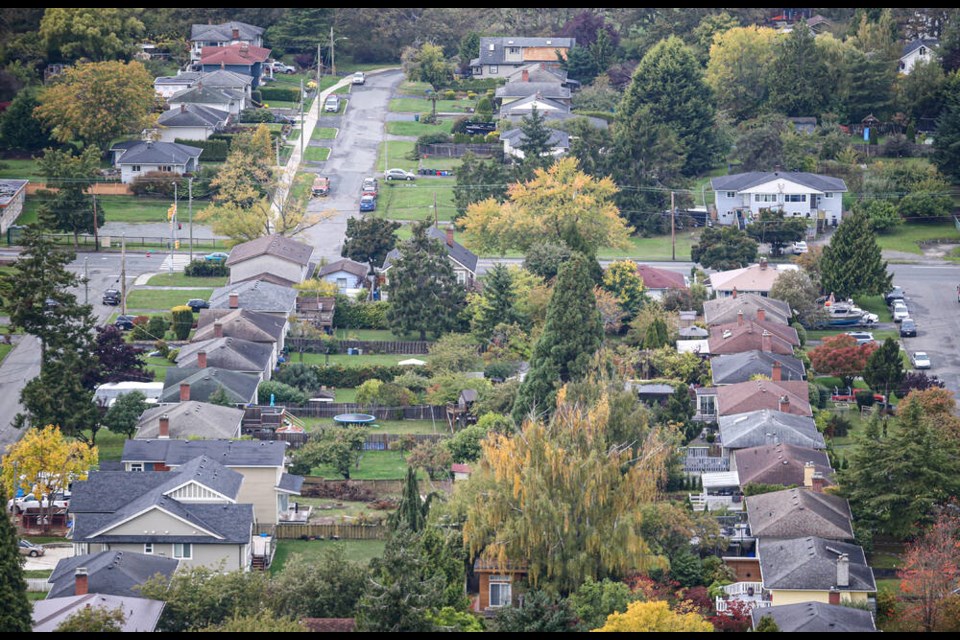Cost of living, housing and homelessness were the leading concerns expressed by those who participated in the 16th annual Vital Signs checkup for Greater Victoria, while natural environment, climate and air quality topped the list of the area’s best features.
The report, which comes out of a survey of almost 4,000 people in the region in May and June by the Victoria Foundation, is intended to highlight needs around the community to aid charitable efforts.
The theme for this year was equity and inclusion; key aspects of life were awarded letter grades.
While overall quality of life earned a B, the economy a B- and environmental sustainability a B-, housing earned a dismal D+. Sports and recreation earned a B+.
Inter-Cultural Association of Greater Victoria chief executive Jean McRae said cost of living and housing pose challenges for newcomers getting started in the region.
“There’s a number of things, obviously, that impact on newcomers coming into the community,” said McRae, who was part of the report’s advisory committee. “Some of the obvious ones are the standard of living and housing — those pieces that are super challenging for everybody here.”
Some newcomers also face racism “on a pretty regular basis,” McRae said. The report points to research from the ICA and the Greater Victoria Local Immigration Partnership that says 70 per cent of people who identify as Indigenous, Black, Asian or a person of colour feel undervalued, isolated and unsafe in Greater Victoria because of their race or ethnicity.
“Those are things that we have to pay attention to in how we move forward as a city,” she said. “We really need to find ways to look at racism squarely and figure out what we can do to change those things.”
The ICA brings in refugees through government programs and other means, with an annual target of about 100 people, said McRae, noting those individuals would already be outside their home countries and officially deemed to be refugees.
“Those tend to be the people who are most in need of being moved.”
More refugees are now starting to arrive after the pandemic slowed the process, she said.
McRae said that with the region’s low unemployment rate, employers are increasingly approaching the ICA looking for workers among refugees and other newcomers. The ICA serves an overall clientele of about 2,700 per year.
She said besides pointing to important issues, the report can help people realize how special Greater Victoria is.
“I think for everybody, this is in many ways a beautiful place to live,” she said. “We’re lucky to be surrounded by beautiful vistas and places we can go and walk.”
Victoria Foundation chief executive Sandra Richardson said the number of respondents to the Vital Signs survey this year doubled to about 4,000, which she called a “significant” jump.
The impact of COVID-19 was clear, she said.
Twenty-seven per cent of survey respondents indicated they experienced the loss of a job or income due to COVID-19, with 19 per cent of those losses permanent. Fifty-eight per cent say their mental health got worse and 66 per cent say their stress level worsened.
Less enjoyment of work was reported by 46 per cent.
Richardson said the charitable sector “had to try to do everything to survive,” with arts, and sports and recreation particularly hard hit. “If you can’t put on your performance or have people there, it certainly impacts the charitable model.”
She said the report invites people to have conversations about their region that can lead to making change and gaining understanding.
“I think Vital Signs has become a tool for us to gauge the public opinion, look and see how it reflects on what we do, and [see] how we can do better.”
For more details and a copy of the report, go to victoriafoundation.bc.ca/vital-victoria.
jbell@timescolonist.com



